Winston, ‘ah we boy'
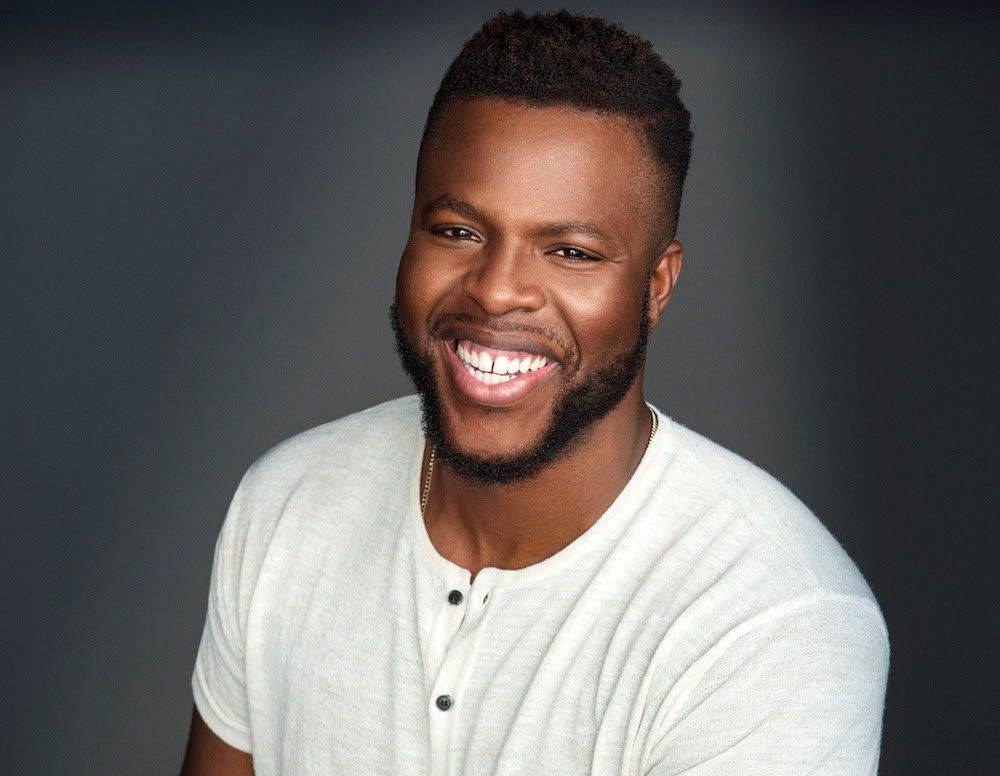
LISA ALLEN-AGOSTINI
HE’S more popular than bene ball.
“I do not know about you all but I cannot get enough of Winston Duke,” posted Karen Bart-Alexander, social development planner, on her Facebook account on March 10. “He is a wonderful Ambassador for Trinidad and Tobago. Thank you Winston.”
The Internet, particularly social media, has been going mad for the 31-year-old Tobago-born actor who plays M’Baku in the Hollywood blockbuster Black Panther. A New York Times movie review said Duke “infuses the role with gravitas, wry charm and incendiary wit.”
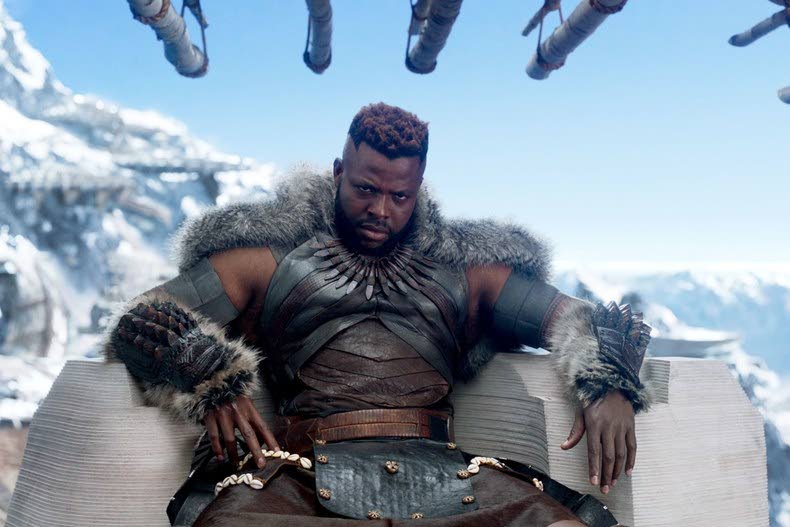
The handsome six-foot-five, 250lb Duke has been lauded for his charm and urbanity as well as his whip-smart responses in interviews on GQ, Esquire, Vanity Fair and People magazines, E! Online, MSNBC’s AM Joy and…well, everywhere. He didn’t correct Kelly Ripa when she mispronounced Tobago as “To-BAH-go” during is interview on ABC’s Live with Kelly and Ryan. Instead, he gently prompted her to talk about what a beautiful time she’d once had in Trinidad – which she pronounced correctly.
“What a fantastic personality. Thank you Tobago,” said economist and former government minister Mary King on her Facebook wall.
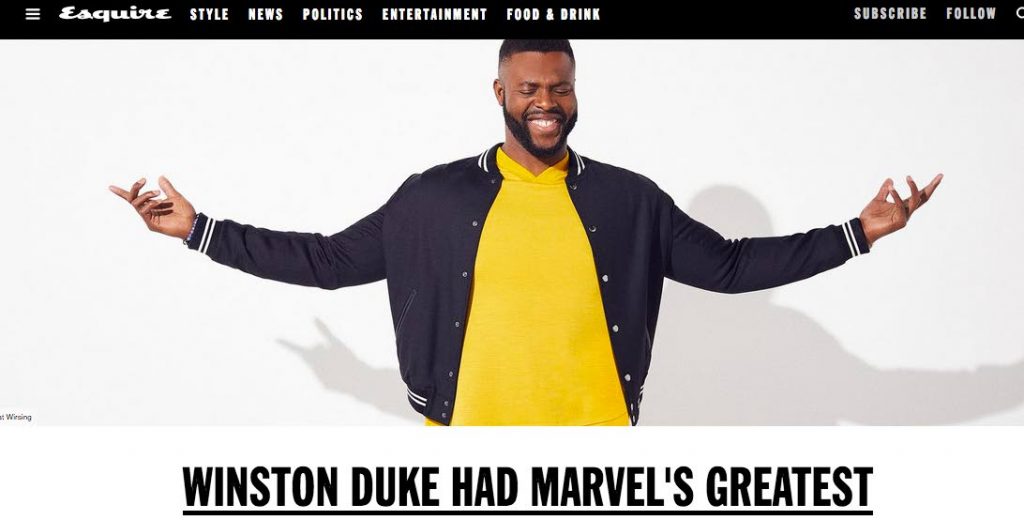
Duke has been an object of international obsession since the film’s January 29 US release. Black Panther is being hailed as a watershed in black cinema with its black writers and director; its cast of superb black actors playing game-changing characters; and storyline that challenges Hollywood narratives of black and white. By the time this article is published, the film might boast a worldwide box-office take of US$1 billion.
Duke’s character M’Baku is a touchstone. Part of the Jabari tribe within Wakanda, the fictional African kingdom where the movie is set, M’Baku challenges the titular character for the crown. The character is so popular it spawned the #MBakuchallenge, inviting people to post their best performances of his scenes.
In TT the hype is just as huge. At the early cinema screenings in Port of Spain, the audience cheers during his first scene in the movie regularly drowned out his opening line.
The TT Internet calls him “ah we boy Duke.” His photo made the front page of a TT national newspaper when he escorted his Black Panther co-stars Lupita Nyongo and Danai Gurira to the Academy Awards on March 3. The same paper reported there are plans for the THA to honour Duke as a son of the soil.
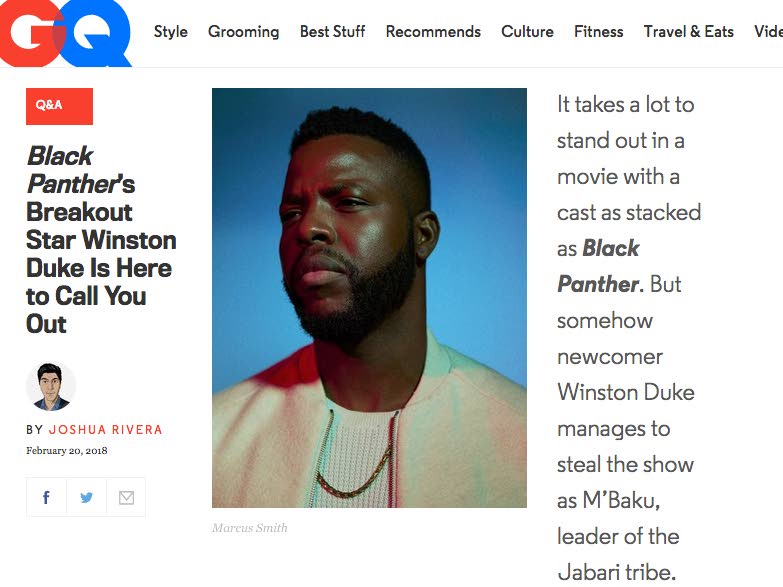
Scrolling through TT Twitter, Facebook and Instagram posts, one sees the hashtags #WakandaForever and #MBaku turn up with notable frequency. Many of the posts, as the web site Hello Beautiful puts it, demonstrate the “Internet throwing their collective panties at him.”
What’s behind all the love?
Trinidadian journalist Soyini Grey, an anchor with teleSUR English, told Sunday Newsday the phenomenon is about Duke, but also about the movie Black Panther.
“It's been a while since we've had representation like this in cinema, and we were starving for it.
“I have to admit I was shocked at how much this movie made me feel, and how many layers it had, and the many emotions it triggered. It's why the reaction to Winston isn't surprising.
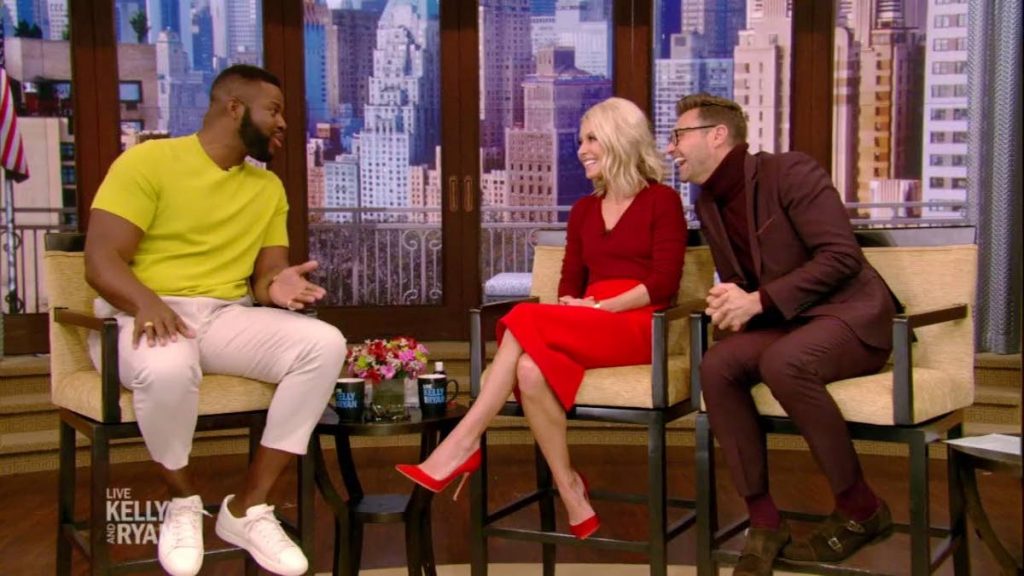
“He is beautiful, and tall, and black, arrogant in a way black people are discouraged from being. And he's a Tobagonian-born actor who is really damn good in the movie. He stole the scenes he was in; his accent was fantastic. I didn't expect him to be as great as he was; he exceeded expectations. In depressing times like this, especially where racial politics seems to be heading, we needed this movie, and Trinbagonians needed Winston to shine in the way he did in this movie.”
Film curator and critic Jonathan Ali told Sunday Newsday, “When people say they haven’t seen this kind of representation in a film before, what they’re saying is they haven’t seen this kind of representation in a Hollywood blockbuster. There have always been films made by black people with primarily or entirely black casts, and there have been black superhero films before too, but none like [this].
"So that’s new, and the response to and success of the film have been phenomenal, though really not surprising.”
Duke’s great performance was not a fluke, Ali said. “Acting talent in TT is beyond dispute.”
Rhoda Bharath, a social and cultural critic, author and English language instructor at UWI, St Augustine, put Black Panther and M’Baku in a wider international political context.
“#WakandaForever is an extension of a growing digital Pan-Africanism. Africa and its diaspora have seen increased identity awareness in the last decade,” she said, citing among other examples the diaspora interest in the Obama presidency and Black Lives Matter. “The sum of those parts add up to an interesting movement that many are describing as Afrofuturism,” she told Sunday Newsday.
Afrofuturism as a broad term describes art and cultural products like music, movies and books that consider possible technological futures for the black diaspora. Think of the space and tech-inspired African-American musicians Sun Ra and Janelle Monae, or the polyglot visuals of Haitian-American visual artist Jean-Michel Basquiat.
Bharath posts on Black Panther and Duke regularly. She said, “#WakandaForever points to a desire by African-descended people to see themselves thrive and realise their potential. The Black Panther movie is yet another stage in this Afrofuturism. It is a visual representation of this ‘black excellence.’”
Asked to elaborate on the relevance of the post-Obama moment to TT, she said, “Pan-Africanism as a movement was founded by Henry Sylvester-Williams and George Padmore. Trinidadians. And, yes, African-descended people in the Caribbean have a much longer history of political empowerment than in the US. But the Caribbean identified deeply with the struggle of African-Americans during that election. The same identification happens with other socio-political issues.”
Duke has been called the breakout star of Black Panther and already there’s been talk about him becoming the next Idris Elba, the British actor who's a crossover star in Hollywood.
Duke’s sure to keep TT and the rest of the world talking for a while to come.

Comments
"Winston, ‘ah we boy’"